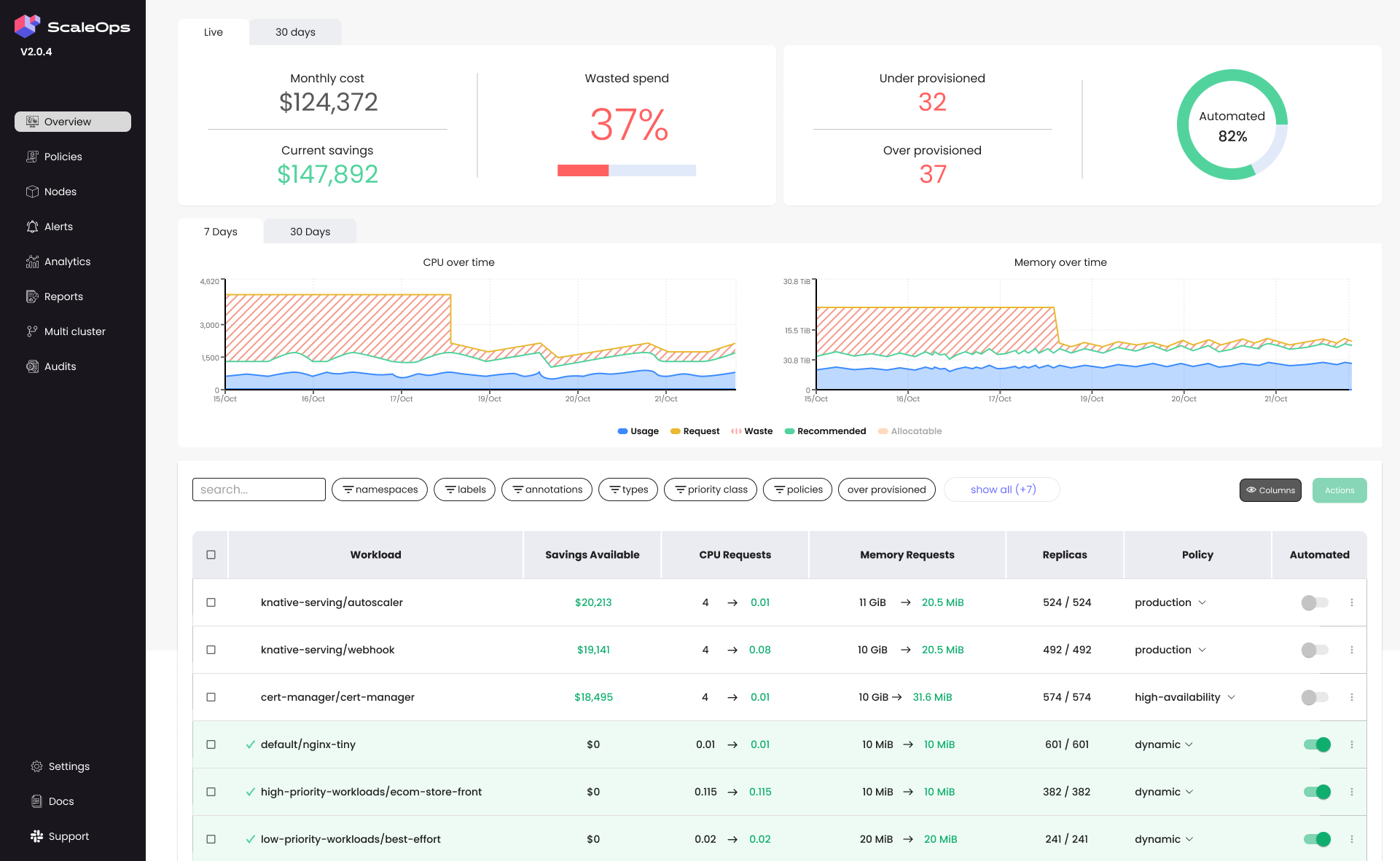One of the advantages of using Kubernetes to handle container orchestration is that the containers are ephemeral, living only as long as needed and then going away. That was supposed to help solve a resource allocation problem because the containers should run just long enough to handle the job. But as Kubernetes environments have grown increasingly complex, it has created another set of problems as engineering teams have to manually change the Kubernetes configurations to handle shifting needs.
What’s more, they often over-allocate to ensure the workload stays up and running, regardless of the spike in usage, which can lead to unnecessarily high cloud bills. ScaleOps, an early-stage startup, wants to fix that. Instead of guessing at and constantly adjusting static allocations, it has built a system to set configurations dynamically based on the requirements at any given time. Today, the company announced a $21.5 million Series A.
Yodar Shafrir, ScaleOps’ co-founder and CEO, says when he was working at his previous company he saw this over-allocation problem frequently. It resulted in a lot of engineering time spent configuring resources and the end result was often inflated cloud bills.
“The companies we work with today, we see waste of between 70% to 80% on containers that are over-provisioned,” Shafrir told TechCrunch. “So we realized that the only way to free the engineers from this repetitive configuration and allow them to focus on what truly matters is to fully automate the resource allocation process.”
The company created a dashboard to show companies the workloads that are currently available and the savings they can get from letting ScaleOps auto-configure them. He says customers usually start small with a single workload to see how it works. Then as they see the results, they toggle on the automation to get further savings.

At a time when companies are looking to save on their cloud bills, he sees an opportunity to grow. The company launched in 2022, and since releasing the product early this year, has a few dozen paying customers, managing thousands of Kubernetes clusters using the ScaleOps product. Customers include Wiz, Coralogix and Outbrain. ScaleOps has 30 employees today with plans to double that number by the end of next year.
The company’s $21.5 million Series A was led by Lightspeed Venture Partners, NFX and Glilot Capital Partners.
Techcrunch event
